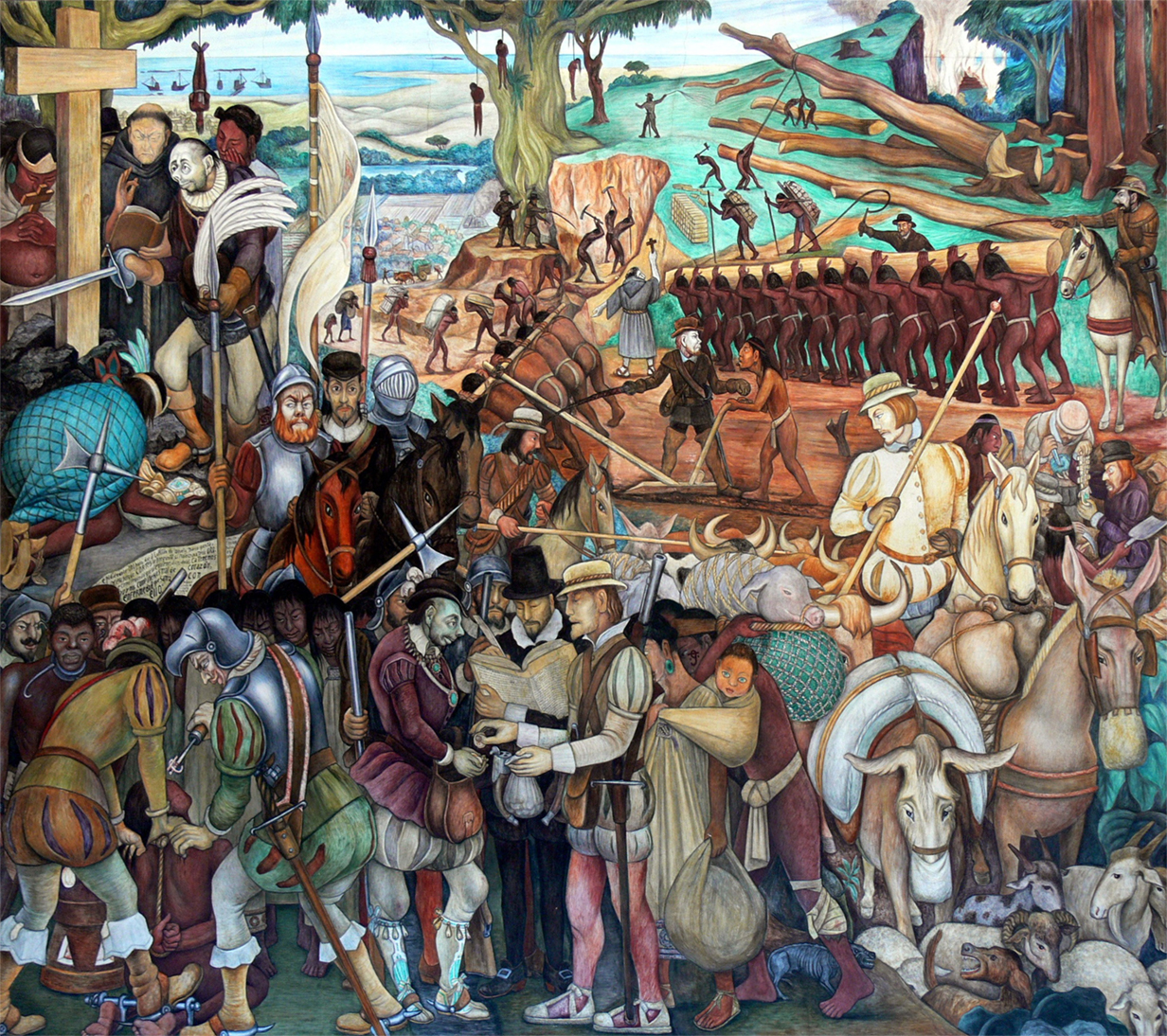Being a first-year seminary student, I have learned quite a bit in class regarding theology, the Bible and leadership in the church. But when I read firsthand accounts of how colonizers perpetuated racial systems of subjugation, I was at a loss for words.
Suddenly, the pain of growing up as a young brown child looking for somebody to physically relate to in the visual guides to our Bible stories had resurfaced when I began to understand why Jesus had blue eyes, blonde hair and fair skin.
Moreover, it became even more real in another class when the following words of a hymn included in the 1975 Baptist Hymnal were read to my class by our professor:
“From north to south the princes meet
To pay their homage at his feet
While western empires own their Lord,
And savage tribes attend his word.”
My professor asked the class, “Who would be considered the descendants of the ‘western empires’ in our churches?”
Directly following a moment of silence, the professor then said something to the extent of, “Our answer to that question ultimately answers who society views as descendants of ‘savage tribes.’ Which camp would you fall in?”
Though talks about racial reparations have become more common in our day, can the church adequately combat racism without first attempting to “decolonize” our narrative?
Before giving my thoughts, there are two points that I would like to make.
It’s easy to get sidetracked
It’s easy to let fear of the unknown consume. It’s also easy to fail to consider that some are deprived of systemic problems that don’t directly affect them (or their worldview, for that matter) daily. And, ironically, it’s also easy for the oppressed to become the oppressor when there is a failure to extend grace that is rightfully expected from others.
Sign up for our weekly edition and get all our headlines in your inbox on Thursdays
My point is, it’s easy to get sidetracked. But failure to move beyond what is “easy” ultimately perpetuates a failure to expand Christian imagination beyond what colonialism deemed “normal” by forcefully imposing European standards upon a “New World.”

Though not an easy task, if the church desires to press on in this journey, it will require gracious ears and empathetic hearts from both sides.
Christ’s body as a counternarrative
For the church, Christ’s body at the cross and table reminds us that our divinely enabled redemption is contingent upon our ability to love our neighbor, hear their stories and situate them beside us as people who equally bear witness to the irrevocable image of God.
Such was highlighted by St. Maximus the Confessor when he said, “The mercy of God is hidden in mercifulness to our neighbor.”
If there is any hope in moving beyond a subjugating colonial narrative, we must remember that Christ’s body counter-politically tells another narrative of equality, mercifulness and love.
Rethinking our strategy
I will be the first to tell you that I don’t have it all figured out. However, I believe a modest proposal for those desiring to combat racism would be to rethink our strategy.
In other words, before thinking we can adequately discuss racism, perhaps the first thing we need remember is that the ground we stand upon is haunted by the sinful stain of colonization.
As a Texas Baptist, when I think about Waco being home to Baylor University and George W. Truett Theological Seminary, I find it unavoidable to also consider that Waco was home to one of the most egregious lynchings in southern history.
For pastors, theological educators and seminarians, how we accomplish such a task may differ from context to context. In the same way, approaches may also vary for laypeople. But just as the church remembers the darkness of Holy Saturday that preceded the resurrection, so too might we need to recognize the world we currently inhabit before envisioning another.
A step in the right direction?
Be it through the reading of a book or the exchanging of stories, I have faith that the church can allow our stories to “story” other people’s stories with the help of the Spirit.
Having said such, if we ever hope to see a day where racial reparations are truly made, perhaps committing ourselves to “decolonizing” Christian imagination would be a step in the right direction to bring about a day where brothers and sisters of color no longer view themselves as descendants of “savage tribes” but beloved children of God.
Bobby Martinez is a Master of Divinity Student at Baylor’s George W. Truett Theological Seminary and a recent graduate of Howard Payne University.














We seek to connect God’s story and God’s people around the world. To learn more about God’s story, click here.
Send comments and feedback to Eric Black, our editor. For comments to be published, please specify “letter to the editor.” Maximum length for publication is 300 words.